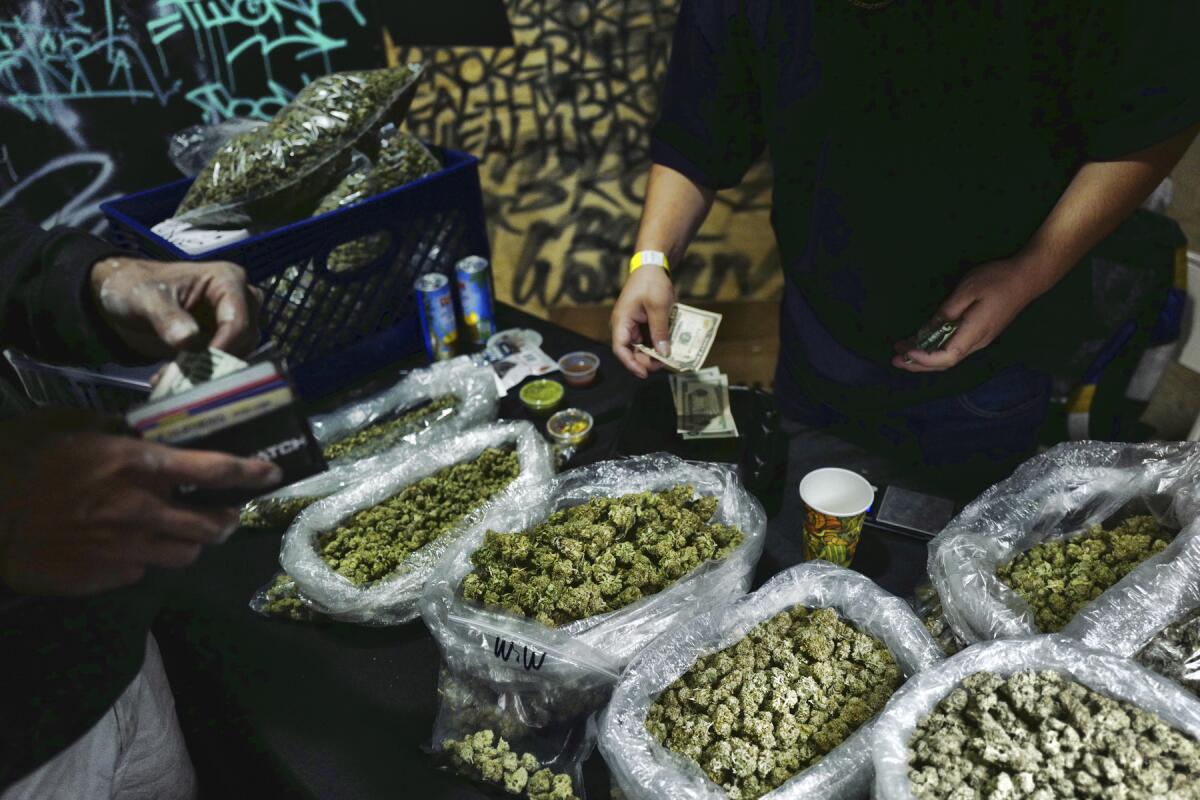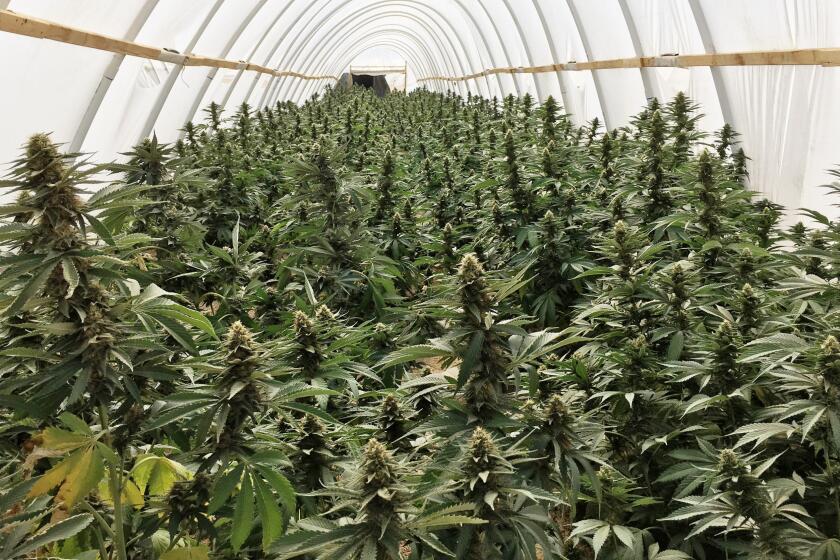I’m the Black owner of a national cannabis company. Here’s why there aren’t many others

- Share via
As a Black man who grew up in Orange, N.J., in the 1980s and witnessed the effects of the war on drugs in my family and community, I never thought I’d be in the cannabis business. But then again, I never thought I’d be in the NBA either.
I started in the cannabis industry more than 12 years ago, near the end of my 16 seasons in the NBA, with a mission to show others the healing power of the plant just as I had shown it to my grandma Viola, for whom I named my company. Although marijuana is now legal in 23 states (and counting), I’m constantly reminded of all the people who look like me who spent year after year in prison for possessing a few grams of weed. As legalization expands, my top priority is to ensure that Black and brown people have opportunities for generational wealth in our community.
But the lack of banking options available because of federal prohibition means anyone who wants to start and support a business in the market needs a generous amount of cash on hand. It takes hundreds of thousands if not millions of dollars just to start such a business — money that most people of color don’t have. As a result, less than 2% of legal cannabis businesses in the United States are owned by people who look like me.
The licensing, taxing and regulatory system imposed on those who hope to sell cannabis legally are crippling and put them at a huge disadvantage.
This could start to change if Congress passes the Secure and Fair Enforcement (SAFE) Banking Act. Sponsored by Sen. Jeff Merkley (D-Ore.) and expected to be up for a key committee vote soon, the bill would protect banks and other financial institutions from federal sanctions for working with legal cannabis businesses.
No one can build and sustain businesses without access to banks. A business account, credit cards and access to traditional loans and lines of credit are necessary for day-to-day operations and long-term survival in any industry.
Barriers to those services, along with excessive taxes and local prohibition, have helped ensure that California’s illicit market continues to account for the majority of cannabis sales. Even the big guys in the legitimate industry are feeling it: Some of California’s largest operators have closed down, and large, multistate firms are pulling out of the market left and right.
Editorial: Californians overwhelmingly supported legalizing marijuana. Why is it still a mess?
The promise of Proposition 64 remains largely unfulfilled five years after passage. California is an example of how not to legalize marijuana.
The few financial institutions that are willing to extend credit to minority-owned cannabis companies charge insane and unfair interest rates. No wonder the NAACP called for “immediate passage” of the safe banking bill. Our communities have always been targets of predatory lenders, and the cannabis industry is no exception.
Without access to banking, we have to personally guarantee the success of our businesses and face being held liable with no bankruptcy protection if they fail, which businesses often do. I have firsthand experience paying a creditor high interest while I’m paying another company unreasonable fees just to hold my money, making the opportunity for success even slimmer.
Passing this legislation will help Black cannabis professionals prosper in a business that has historically been used against us, provide much-needed relief for the industry nationwide and allow our businesses to function as others do. And although it won’t fully legalize cannabis, which should be the primary goal, it would be a great start.
Al Harrington is a former NBA player and the chief executive of Los Angeles-based Viola Brands.
More to Read
A cure for the common opinion
Get thought-provoking perspectives with our weekly newsletter.
You may occasionally receive promotional content from the Los Angeles Times.











